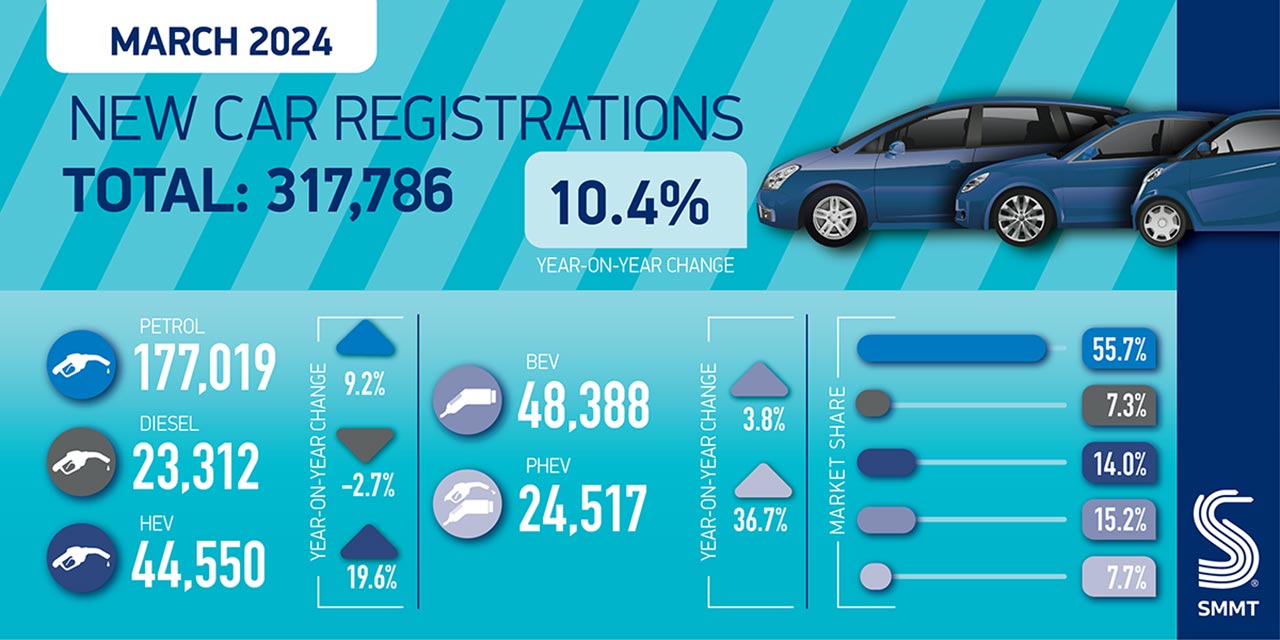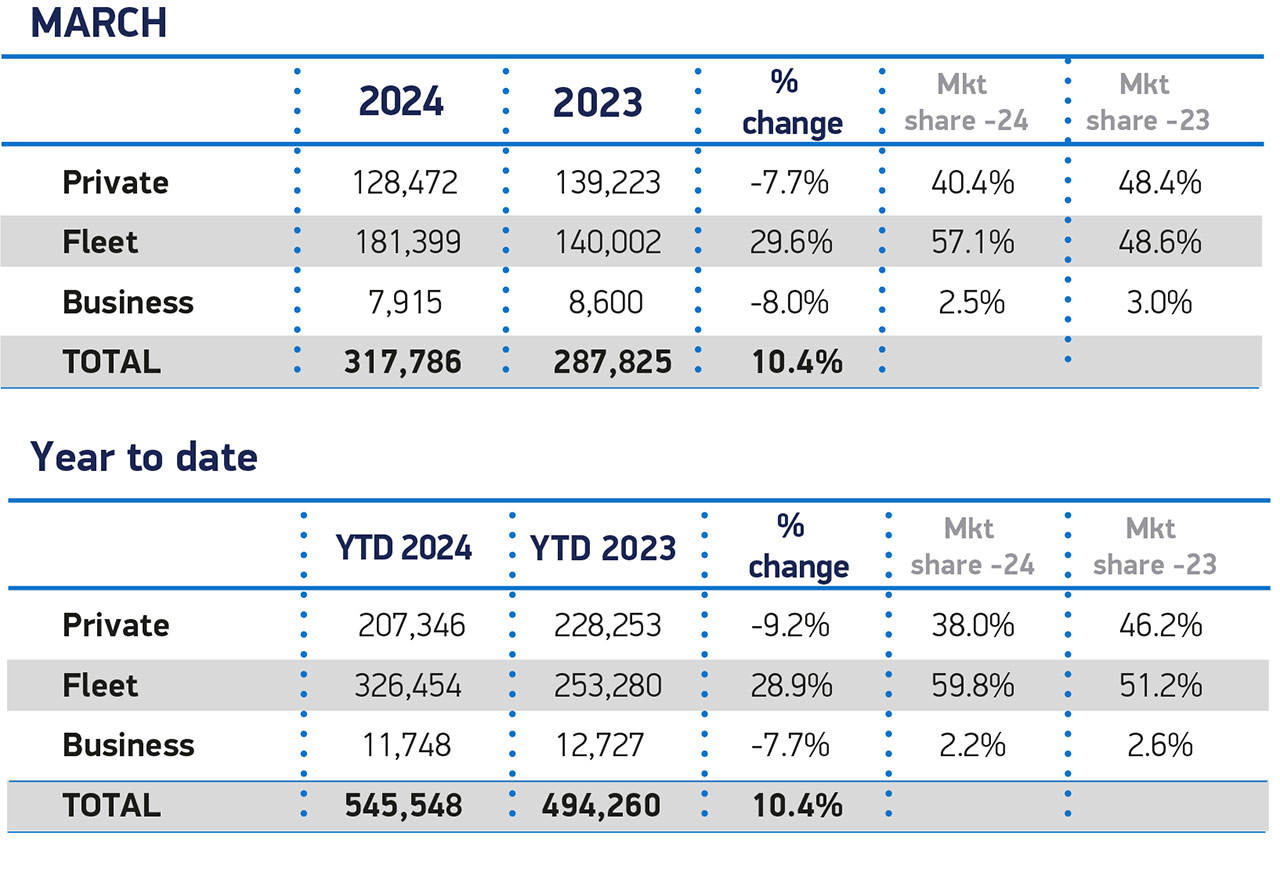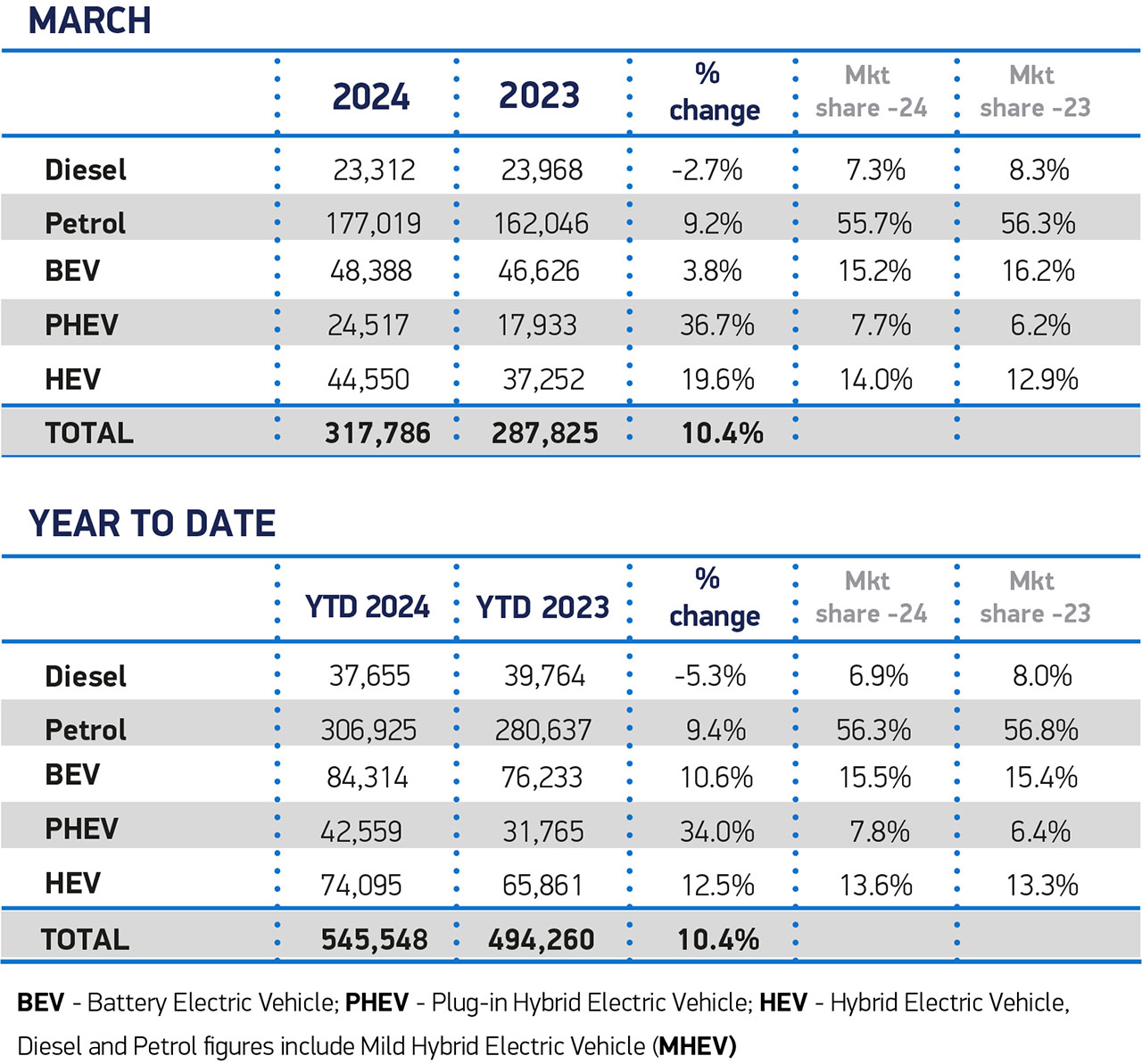The UK's new car market recorded a significant upturn, marking its 20th consecutive month of growth, with new car registrations climbing by 10.4%. This surge resulted in 317,786 new cars being registered, all sporting the new '24' numberplate, indicating the strongest March since 2019. However, this achievement still trails behind the pre-pandemic figures by 30.6%.
This period of growth predominantly stems from fleet investments, which saw a 29.6% increase. Despite this positive trend, the sector faces challenges with a downturn in private buyer registrations by 7.7%, affected by the prevailing economic difficulties, low consumer confidence, and heightened interest rates. Additionally, small business registrations experienced a decline of 8.0%.
Although petrol cars still sell and diesel continues to dwindle, there was a noteworthy surge in the registration of vehicles with an electric motor – led by hybrid electric vehicle (HEV) registrations, which hit a record 19.6% increase, totalling 44,550 units or 14.0% of the market share.
Plug-in hybrids also saw significant growth, exceeding a third to 24,517 units.
Battery electric vehicle (BEV) registrations reached their highest ever level, with close to 49,000 new EVs registered in one month alone. Looking back to just before the pandemic, this number would have represented all of the EVs sold in a whole year.
This shift highlights the urgent need for government intervention to support consumers and accelerate the renewal of vehicle fleets, with BEV uptake primarily driven by large fleets due to attractive tax incentives.
Despite manufacturers' generous incentives encouraging the switch to zero-emission vehicles, the broader market transition requires support for both business and private buyers. Proposed measures, such as halving VAT on BEVs, adjusting the expensive car supplement for Vehicle Excise Duty, and standardising VAT rates for public EV charging, are seen as crucial steps towards enabling more consumers to transition to zero-emission vehicles.
Mike Hawes, Chief Executive of the Society of Motor Manufacturers and Traders (SMMT), stressed the importance of government support for private consumers to ensure a smoother and more equitable transition towards zero-emission vehicles. “Market growth continues, fuelled by fleets investing after two tough years of constrained supply. A sluggish private market and shrinking EV market share, however, show the challenge ahead,” Hawes stated. He emphasised the unsustainability of relying solely on manufacturers for the transition and called for government action to bolster consumer support.
The SMMT plays a pivotal role in representing the UK automotive industry, advocating for its interests nationally and internationally. The automotive sector is a cornerstone of the UK economy, contributing significantly to the nation's economic output, employment, and global trade. With the industry supporting over 800,000 jobs and engaging in extensive research and development, its success is crucial for the UK's objectives related to economic growth, net-zero emissions, and global competitiveness.
As the UK automotive industry navigates through these challenging times, the call for enhanced government incentives for EVs underscores a critical juncture. Such measures are not only vital for achieving environmental goals but also for ensuring the sector's resilience and continued growth in the face of economic uncertainties.





















Discussion about this post